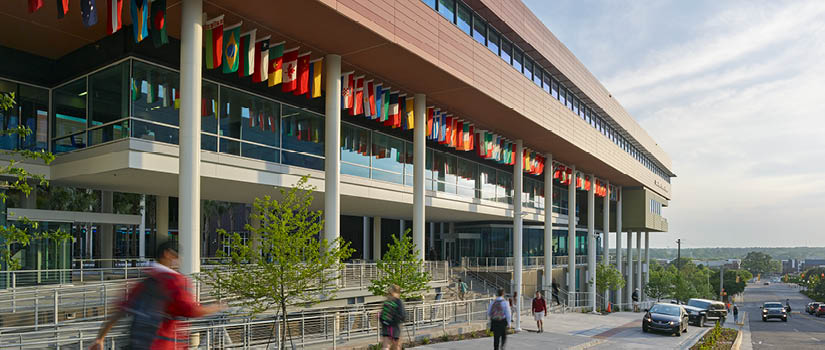U.S. agency renews USC international business center’s federal funding
The University of South Carolina’s CIBER program was recently renewed for four years by the U.S. Department of Education, which provides
a $1.46 million grant to the university to support CIBER activities for academic years
2022-26. USC is one of only 16 universities throughout the U.S. to receive this funding
and CIBER designation.
CIBER purpose
The Centers for International Business Education develop, implement and coordinate
programs consistent with the priorities of the federal government for enhancing U.S.
trade and global competitiveness. The CIBERs are designed to be national resources
for teaching advanced international business practices and strategies, provide instruction
in critical foreign languages and fund leading research focused on international trade
and commerce. The University of South Carolina CIBER was established in 1989 and has
been allocated more than $12.5 million to support these important international business
activities.
Why it matters
- The USC CIBER renewal marks $364,000 a year for the next four years so the center can provide international business opportunities for South Carolina doctoral, graduate and undergraduate students, faculty and external professional stakeholders.
- CIBERs were established to improve America's capacity for international understanding and economic enterprise and to help U.S. businesses prosper in a global economy.
- With 16 public and private research institutions included in the CIBER program, the universities coordinate internationally oriented educational, research and outreach resources to directly strengthen the international competitiveness of the U.S.
For more than 30 years, USC has established itself as a leading institution in international business education and research. Its international programs and research have consistently ranked among the top U.S. institutions.
“One of the primary reasons for our consistent excellence in international business
is our continued innovation in educational program design across all academic levels
as well as our exceptional thought leadership addressing current and emerging international
issues,” said Kendall Roth, senior associate dean and executive director of the USC
CIBER. “CIBER has provided critical resources and funding to sustain these innovative
and leading-edge programmatic and scholarly efforts.”
CIBER activities
- CIBER-funded activities include study abroad experiences, internship support, faculty training, technology workshops, conferences, research support, building relationships with global higher education institutions, language programs, curriculum development, travel, educational materials and other programmatic support.
- They include interdisciplinary activities that incorporate foreign language and international studies training for business curriculums, faculty and degree candidates. These include developing new areas of functional specializations such as global cybersecurity, financial technology, analytics and artificial intelligence, marketing and digital transformation.
- Beyond internal stakeholders, CIBER activities are available for community partners and other business professionals to develop or enhance their international skills, awareness and expertise.
- CIBER collaborative activities involve other higher education institutions, local educational agencies, professional associations and businesses to augment international skills, awareness and expertise. Particular emphasis is being devoted to provide support and collaboration directed towards the internationalization of Minority Serving Institutions and Community Colleges.
- CIBERs contribute to research designed to strengthen and improve the international
aspects of business and professional education and to promote integrated curriculums.
USC CIBER recipients
Focusing on the research, education and training in international business and trade competitiveness, USC CIBER’s 70+ activities serve various groups or functions with the federal funds. These include:
- Doctoral education: 4 activities
- Graduate education: 12 activities
- Undergraduate education: 18 activities
- Business and Government outreach: 11 activities
- Academic outreach: 18 activities
- Project evaluation: 5 activities
While many CIBER activities serve current students and faculty, they also implement
activities for community outreach programs, historically Black colleges and universities
students and local K-12 school districts.
National support
While the 16 CIBERS in the U.S. at public and private research universities and colleges provide resources for their own institutions and states, they also are required to serve as national and regional resources. Some examples of those broader resources include programming for:
- Minority Serving Institutions and Community Colleges
- National associations of business and academics, i.e., the Academy of International Business
- Study abroad organizations, i.e., the National Association of International Educators (NAFSA)
